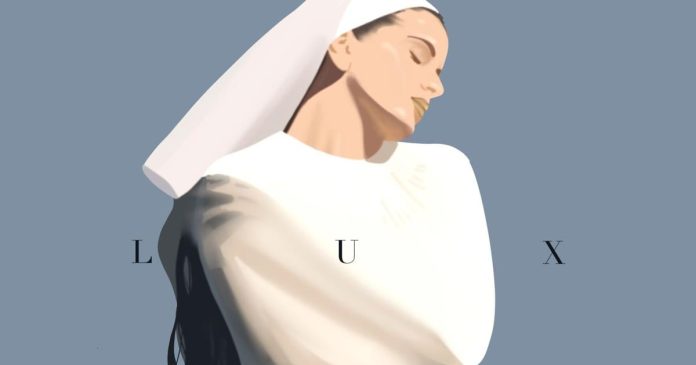“LUX” by ROSALĺA unexpectedly took me to the orchestra. This album is rich in orchestral sounds, making it musically classical.
Prior to the album, I had only heard her song “BIZCOCHITO” which is a totally different genre of music compared to what “LUX” is. Violins, pianos and horns intertwine to make the historical sounds of the album.
“Sexo, Violencia y Llantas” opens the album with intensity. It begins with a quiet piano and gentle vocals and then blasts you with powerful synths and bass. This song is like the rest of the album combined into one song. There are these quick decrescendos that give me whiplash but I am lowkey obsessed with it.
The violin of “Reliquia” was the best of the album. It was rhythmic and bright-sounding, making the song sound hopeful and inspiring. ROSALĺA’s haunting vocals on the track were lovely. The glitchy hyper-pop-esque ending of the song was a little odd because this was the only time you hear that in the album. In general, it’s a pleasant-sounding song that has a few weird bits and pieces.
It shocked me when I heard “Porcelana” because of the use of timpani in its instrumental. I have not heard that instrument used in modern music frequently, so it was refreshing for it to be implemented. The deep, resonant sounds of the timpani create a dramatic effect in music. This timpani sounded slightly electronically produced though, which is disappointing. I would prefer authentic instrumentals to do an instrument like the timpani justice.
In high school band class I had to listen to multiple computer generated versions of songs and many of the tracks on “LUX” reminded me exactly of that.
The horns used in “Mundo Nuevo” sounded very robotic to me. When you use computer-generated instruments, it takes away from the personality those instruments bring to a song. The quality of music hits a whole new level when you use real instruments.
The other thing about the album that I find to be off is the abrupt endings to the songs. While not every song needs to be tied off with a pretty bow, the way these tracks ended messed with the flow of the album. Even if this was an intentional artistic choice, the way these songs end made the album feel random and it simply did not sound good. Every track felt incomplete.
The lyrical themes of the music stayed within the same realm. ROSALĺA sings about romance, religion and the hardships that come with those things. Her vocals kept my attention much more than her lyrics.
You cannot ignore ROSALĺA’s pure vocals. She easily pulls off delicate, light vocals and the aggressive vocal belts. The nasal in her tone adds to the charm of her singing. Her voice is what complimented the traditional sounds of the instrumentals.
I adored ROSALĺA’s vocal performance on “Divinze.” It felt very authentic and emotional, with some moments sounding as if her voice was just barely able to come out. This made her sound breathy and gentle. She also did this interesting vocal staccato in the post-choruses that added a cool rhythmic effect to the song.
“Mio Cristo Piange Diamanti” was an incredible vocal display. I genuinely had chills listening to ROSALĺA sing on this track. The vibrato in her voice brings out strong emotion in the song. The end sounds like a movie with the way it overwhelms your ears. This one was my favorite track from the album.
“Dios Es Un Stalker” was another track I enjoyed. The mix of plunky bass, flamenco guitar and violins gave the song a slightly different vibe compared to the other songs. It felt a lot more dancey and fun.
The album started to feel repetitive once I hit the ninth track of the album. I was trying to lock back into what I was listening to, but I got bored quickly. The notes I took over the songs progressively got scarcer as I went through the album because there was nothing new to say. Songs like “Sauvignon Blanc” and “Magnolias” were pretty, but nothing that sounded new.
This album could’ve done better with a little more exploration into genre-mixing or just cutting some of the songs in general. The impact of the album dissipates the more you listen. The songs do everything right, they are just far too similar.
ROSALĺA’s deserves the flowers for her work. “LUX” has great intensity reminiscent of orchestra pieces that made the album stand out against her discography.







